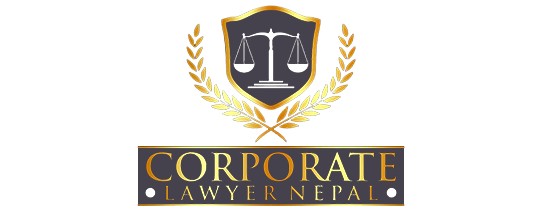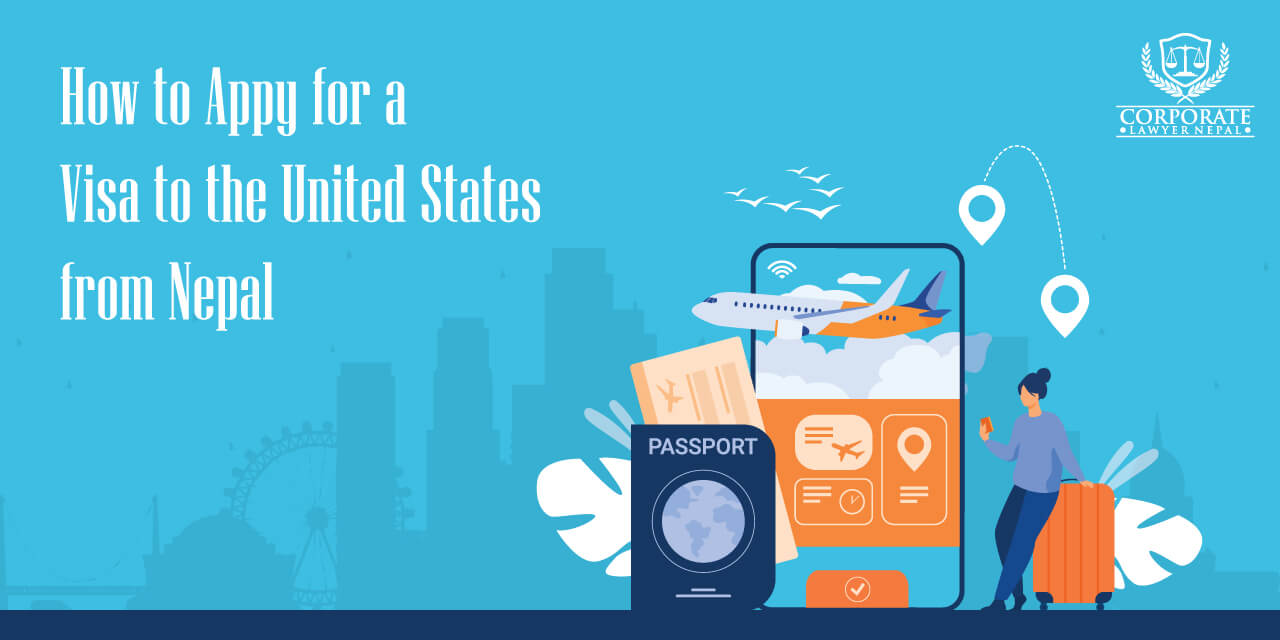The United States is an ideal dream destination for Nepalis. Many Nepalis travel to the United States for vacation or to visit family and friends who live there.
In the United States, there are two kinds of visas: immigrant and nonimmigrant. Foreign nationals who intend to live permanently in the United States are granted immigrant visas.
Nonimmigrant visas are granted to foreign nationals who wish to visit the United States for a limited period of time for tourism, medical treatment, business, temporary work, study, or any other reason.
This article is for people who want to visit the United States on a non-immigrant visa and apply for visas as a student, for business, for medical treatment, or for certain types of temporary work. Those planning a trip to the United States must apply for a tourist (B-2) or business nonimmigrant (B-1) visa at the embassy.
Documents required for entry into the United States on a Non-Immigrant Visa / Tourist Visa
The following documents must be submitted by Nepalis seeking visas under the Non-Immigrant Visa / Tourist Visa category.
- Original passport with a six-month validity date after arrival in the United States.
- Previous passports, if any.
- A digital and hard copy of the photograph that meets the specifications.
- Letter of appointment for an interview
- The Visa Application Center stamps the visa application’s confirmation page.
- Receipt of payment for the paid fee
- Your travel arrangements.
- Bank statements and other forms of proof of funds
- TAX and PAN information, as well as previous year tax documents
- A business card, if you have one.
Documents Required for a Student Visa to the United States
The F-1 visa is used for student visas.
The following procedures are followed for student visas.
1. Obtain acceptance and your I-20
2. Make a payment for your SEVIS fee: The SEVIS fee of $350 is a processing and maintenance fee for the Student and Exchange Visitor Program (SEVP). Fill out your DS-160 visa application as follows: All prospective international students must complete a DS-160 form in order to obtain an F-1 visa.
3. Schedule your visa interview: Waiting periods differ by country and can last months. To allow for dissent, schedule your appointment as soon as possible.
4. Attend your visa interview: At this stage of the F-1 visa application process, the US consulate or embassy confirms that you are coming to study as a legitimate and serious student.
5. Visas are non-refundable: First, you must select between an immigrant and a non-immigrant visa. You must pay the visa fee once you’ve decided on the type of visa you want to apply for. Please note that the US visa fee is not refundable or transferable. Besides this, the visa fee must be paid even if the visa is not issued.
6. Consultation for Visa Interviews:
According to US law, all non-immigrant visa applicants are presumed to be intending immigrants unless they can persuade the consular officer otherwise. As a result, you must be able to show that your reasons for returning to your home country outweigh your reasons for remaining in the United States.
When visiting the embassy for an interview, keep the following points in mind.
1. Nepali connections
“Connections” to your homeland are the aspects that connect you to your homeland, native country, or present place of residence (i.e., job, family, financial prospects that you own or will inherit, investments, etc).
The interviewer may inquire about your future career intentions or commitments, family or other relationships, academic expectations, test scores, long-term plans, and career opportunities in your home country if you are a prospective student. After all, after all, every situation is unique, and no single explanation, record, credential, or letter can ensure success.
Officers at the embassy or consulate will frequently question you about your ties to your home country. This is done to ensure that you have enough of the things that are holding you back and that you will eventually return to your home country. These usually include your job or business, family, any property you own, and anything else that comes to mind.
2. The language of instruction is English.
The interview will almost certainly take place in English instead of your native language. Before the interview, yet another recommendation is to start practicing English conversation with a native English speaker. If you are coming to the United States exclusively to study English, you should be ready to explain how English will support you in your native country.
3. Speak for your own sake.
Please do not bring any family members or parents to your interview. The consular officer is interested in interviewing you, not your family. If you are hesitant to listen on your own behalf, you make a poor impression. If you are a minor trying to apply for a high school and your parents must be present in case of queries, such as financial support, individuals must wait in the reception area.
4. Learn about the program and how it relates to your career goals.
If you are unable to articulate why you want to study in the United States, you may be unable to convince the consular officer that you’d like to study rather than apply for citizenship. You should also be able to explain how your studies in the United States will help you advance in your professional life in your homeland.
5.
Due to the volume of applications received, all consular officers face significant time restrictions in order to execute a timely and efficient interview. They must make a decision based primarily on their observations developed in the first minute or two of the interview. As a result, the first thing you say and the first perception you make are vital to success.
6. Documentation Supplements
The consular officer should be able to tell what written documents you are presenting and what they mean at a glance. Lengthy written justifications are difficult to fully read and assess. Bear in mind that if you’re lucky, you’ll only have 2-3 minutes for the interview.
7. Not All Countries Are Created Equal
Applicants from financially distressed countries or regions with a high number of students who have stayed in the United States as immigrants will have a more difficult time obtaining visas. According to statistics, applicants from these countries are more likely to be asked about job opportunities in their home countries after finishing their studies in the United States.
8. Employment
Your main reason for coming to the US should be to study, not to work either during graduation. Although many students work off-campus while studying, this is secondary to their primary goal of finishing their US education.
You must be able to explain your plans for leaving the program and returning home. If your spouse is applying for an accompanying F-2 visa, keep in mind that F-2 dependents are not permitted to work in the US under any circumstances. Prepare to discuss your spouse’s plans for his or her time in the United States if you are asked.
9. Dependents Who Remain at Home
If your family and children are staying in your country, be prepared to discuss how they will support themselves while you are gone. It can be particularly difficult if you are your family’s main source of income. Your student visa application will almost certainly be denied if the consular officer believes that your family members will rely on you to send money from the United States to support them. If your family decides to join you later, they must apply at the same post where you applied for your visa.
10. Keep a Positive Attitude
Do not argue with the consular officer. If you are denied a student visa, ask the officer for a list of documents that he or she recommends you bring in order to overcome the refusal, and try to get the reason for the refusal in writing. Be self-assured, remain calm, and smile.
11. Organize all of the documentation you’ll need for the interview.
This is among the most key steps in your interview preparation. Even during a visa interview, you should present substantial proof to obtain a visa. You must present the following documents:
Guarantors, such as your parents, who will help you support yourself while you are abroad, can also be included.
12. What to expect at the interview
During the interview, you should focus entirely on the officer or translator. Make an effort to listen carefully, consider your response before responding, and keep your responses brief and to the point. You can prepare yourself and your answers by researching the most common questions asked at visa interviews online.
13. Make an explanation
It is critical to prepare an explanation for some of the most frequently asked visa interview questions. Questions that are frequently asked include:
Why you want to attend the university you chose, what you intend to study, your career goals after graduation, and other related topics.
Officers at the embassy or consulate will frequently question you about your ties to your home country. It is done to ensure that you have enough of the things that are holding you back and that you will eventually come back to your native country.
14. Discuss your family
If you have a wife or children, give them notice of your plans and discuss how they will be funded when you are away.
15. Make it clear that you intend to return home after graduation
It’s absolutely essential, so make sure to emphasize it and provide instances of how you intend to return to your home country after getting a degree.
Conclusion
If you intend to visit the United States of America, you should seek legal counsel from our firm, Prime Legal Consultants and Research Center. We charge reasonable counseling and documentation fees, and we strive to make your trip as easy as possible. Many of those we advised live in the United States.
Please contact us at +977-9849517735 or by email: info@corporatelawyernepal.com.np
Alpana Bhandari is a founding partner and CEO of Prime Legal Consultants and Research Center. She graduated from American University Washington College of Law. She specializes in corporate/arbitration and family law.


Write a Comment